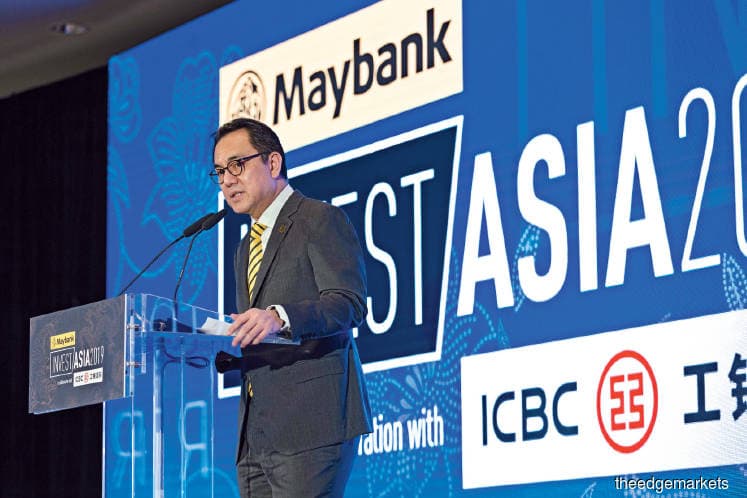
This article first appeared in The Edge Financial Daily on May 10, 2019
SINGAPORE: Against the backdrop of a fragmented global environment, countries around the world have started sliding into new regional arrangements, especially in Asia, said Malayan Banking Bhd (Maybank) group president and chief executive officer (CEO) Datuk Abdul Farid Alias.
Abdul Farid said there are signs the transition from globalisation to regionalisation is fast under way, with many of the world’s future trends expected to converge in Asia.
“The region’s rapid progress has surprised even the most critical sceptics, with the regional economy projected to grow bigger than North America and Europe combined by 2030,” he said when delivering his keynote address entitled Doing Right in a Period of Uncertainty at the Invest Asia 2019 conference yesterday.
Abdul Farid highlighted that the share of intra-Asian trade to total trade accelerated to 61% in 2018, up from 57.3% in 2016.
Intra-regional foreign direct investment also increased to 50.2% in 2017, up from 48% in 2015. Besides, about half of all jobs created from greenfield investments in Asia originate from within the region.
Abdul Farid acknowledged that the markets, across asset classes, remain on edge, as the global economy is weakening in no small measure because of a widespread sense of uncertainty, a great source of which is the ongoing trade war.
“We don’t have to look beyond the events of this week to get a sense of the shared challenges we face. We saw another one of [US President Donald] Trump’s market-breaking tweets this week — threatening to hike tariffs on Chinese imports from 10% to 25% — just after the end of what initially appeared to be friendly trade negotiations last week,” he said.
He, however, added that the real problem is not merely the risks that tariffs pose to the present economic order.
“The conflict as a whole has cast serious doubts about the future of global economic connectivity, with world trade volumes plunging at the fastest rate since the depths of the financial crisis in May 2009,” said Abdul Farid.
Nevertheless, he believes the current period of global uncertainty is a profound opportunity for Asian economies to emerge as leaders in sustainability, without compromising on Asean’s strong values to make sustainable returns or profits.
“Investors should be convinced that the freer and more accessible the capital markets, the higher and more sustainable the level of environmental protection,” said Abdul Farid.
He noted that everyone stands to benefit from the new markets, and new forms of financial products as well as environmental and social improvements that sustainable finance is bound to achieve in the coming years in Asean.
“While financial institutions have started embracing the importance of incorporating sustainability considerations, more concerted dialogue is needed to drive a humanised agenda that aligns the interests of capital markets with the developmental needs of underserved communities,” he added.
Organised by Maybank, Invest Asia 2019 hosted over 240 local and regional fund managers from Singapore, Malaysia, China, Hong Kong, the Philippines, Thailand, the UK and the US with total estimated assets under management of US$11 trillion (RM45.65 trillion).